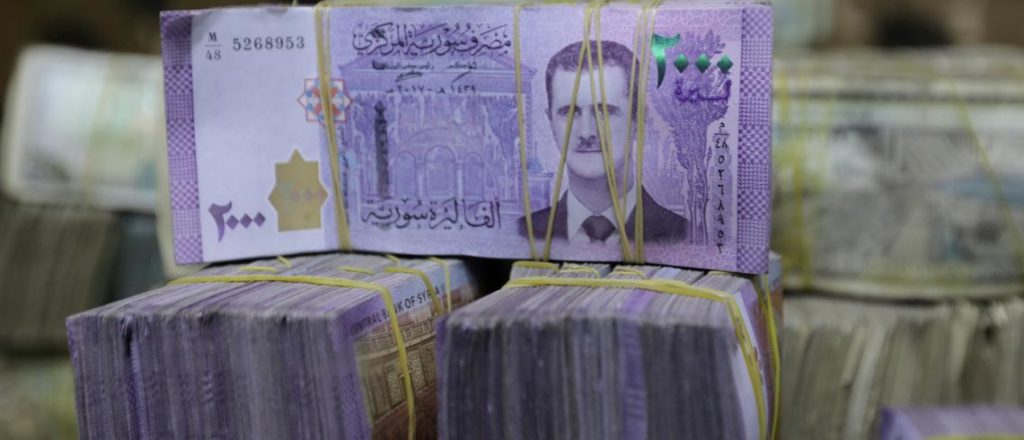Australia/Israel Review
US Syria sanctions put Hezbollah under pressure
Jul 8, 2020 | Hanin Ghaddar

Washington’s imminent implementation of the Caesar Syria Civilian Protection Act is setting off alarm bells in Lebanon. Although the law’s main intent is to punish Bashar al-Assad’s government for atrocities committed against the Syrian people, the regime would not have been able to survive long enough to commit these abuses without direct and indirect support from Lebanese militias, officials, and businesses.
Most notably, Lebanese militant group Hezbollah was at the forefront of the Syria war for years, helping Bashar al-Assad conduct his brutal campaigns more efficiently by drawing on fighters and resources from Lebanon. The group’s deep ties with the regime persist today, including in the fuel industry and other sectors explicitly targeted by the US Congress’ Caesar Act. This gives US officials an opportunity to sanction Lebanese individuals, channels, and instruments that Hezbollah and Damascus use to keep the regime afloat.
Indeed, the ground is fertile for more pressure on the group and its allies inside Lebanon.
The Hezbollah-led government in Beirut has asked the International Monetary Fund for an aid package of US$10 billion, so local officials understand the repercussions of defying US law and the broader international community at this critical moment. Accordingly, Washington and its partners should make clear that the country cannot expect IMF aid until it begins cutting specified military and commercial ties with the Assad regime.
WHO SHOULD BE ALARMED?
Lebanon has long been connected to Syria politically, economically, and financially. The fact that the border between the two countries is still not officially demarcated allows for unchecked daily smuggling operations, making it difficult to estimate the size of financial exchanges between the two countries. But some details are evident – as Reuters reported in November, “Wealthy Syrians are believed to have deposits of billions of dollars in Lebanese banks.” Much of this money became trapped when Lebanon’s economy cratered and local banks imposed tight limits on cash withdrawals in US dollars.
Some of these banks and their associated Lebanese partners and businesses may be subject to new sanctions for materially assisting the Assad regime, particularly if they are tied in any way to logistical support for Hezbollah military operations in Syria.
Yet the Caesar Act’s most significant effect may be deterrence – namely, Lebanese companies that were hoping to gain access to the Syrian market through trade or reconstruction projects will now have to reconsider those plans.
Fuel smugglers are another important group who could be affected by the act. At a time when Lebanon cannot afford to lose more of its foreign currency reserves, Central Bank governor Riad Salameh hinted last month that the country is haemorrhaging US$4 billion per year due to Hezbollah and other actors smuggling government-subsidised fuel into Syria.
STRENGTHENING THE BORDER, SEPARATING FROM ASSAD
By using these and other Syria-related violations as leverage, the Caesar Act could help Lebanon strengthen its sovereignty and empower its institutions against non-state actors. In particular, if the threat of Caesar sanctions convinces Lebanese officials to formally demarcate their border and begin properly implementing Security Council Resolutions 1559, 1680, and 1701, then Hezbollah would be less free to exploit national institutions in support of the Assad regime next door.
Moreover, smugglers would be less free to continue activities that damage Lebanon’s economy and bring dangerous weapons into its territory.
On the diplomatic level, the Caesar Act can help discourage efforts to normalise Lebanese relations with Syria so long as an unreformed regime holds power in Damascus.
When Lebanese activists and opposition figures raised concerns last month about how fuel smuggling is hurting the economy, Hezbollah leader Hassan Nasrallah stated that the only solution is to normalise relations in order to properly coordinate with Syria on resolving the problem. The group prefers this solution because it needs to keep the estimated 120 illegal crossings under its control, instead of having the border demarcated and supervised by the Lebanese Armed Forces. Yet Lebanese citizens (and banks) can no longer afford the damage caused by loose borders and Hezbollah involvement in Syria.
The Caesar Act is a strong instrument to reinforce the argument that Lebanon can no longer be tied to the current Syrian regime on the economic and security levels. In order to prevent a total economic collapse, the country needs to distance itself from the Assad-Iran axis and defy any normalisation with the present regime in Damascus. The threat of Caesar sanctions is one way of prodding Lebanese citizens to realise that clear, firm distancing is a prerequisite for international aid.
Hanin Ghaddar is the Friedmann Fellow in The Washington Institute for Near East Policy’s Geduld Program on Arab Politics. © Washington Institute, reprinted by permission, all rights reserved.
Tags: Hezbollah, Lebanon, Syria, United States






